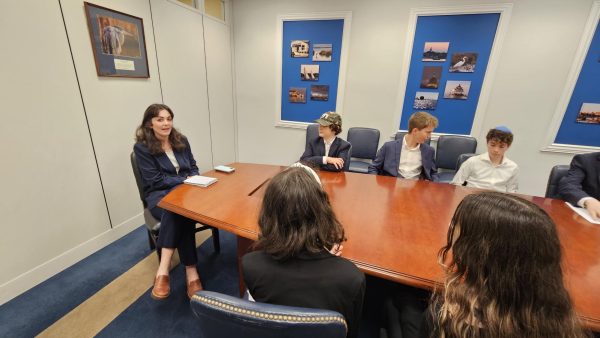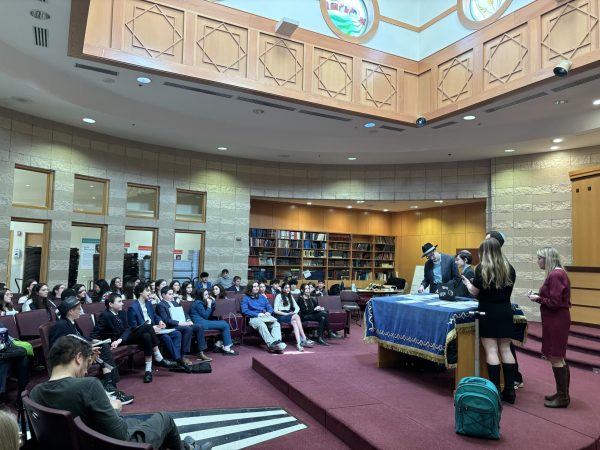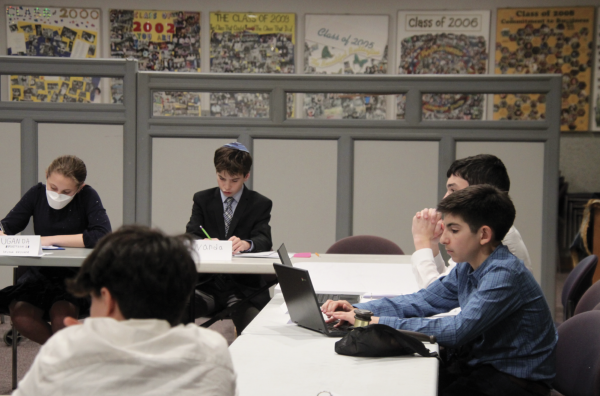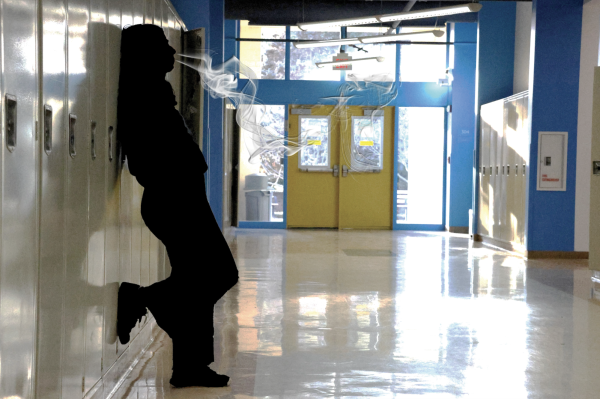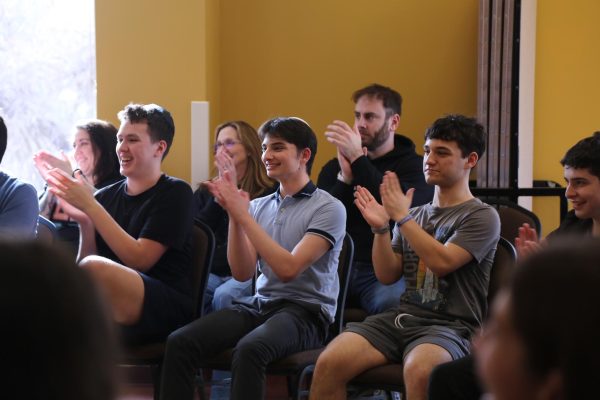New policy restricts students’ use of cellphones
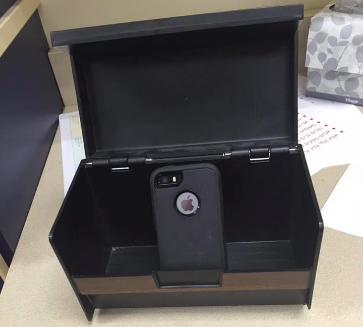
Hebrew teacher Yaffa Dagony has a phone box in her classroom to collect her students’ phones.
October 10, 2016
In order to limit student usage of cellphones during school hours, the administration revitalized the school’s cellphone policy. The official policy was introduced to students on Sept. 19.
The policy states that middle school students must keep their phones in their lockers the entire school day. High school students may carry them during the day, but they must ask permission to use them during class or Zman Kodesh. If students use their phone without permission, on the first and second offense their teacher will take it to the front office until the end of the day, at which point students can pick them up and an email will be sent home to their parents. On the third offense, a parent must pick the phone up at school. On the fourth offense, students will meet with an administrator and will lose their phone privileges at school for a determined period of time.
Additionally, high school teachers can choose to collect phones at the beginning of class or Zman Kodesh, and then give them back to students at the end of the period.
High School Principal and Associate Head of School Marc Lindner said that previously there was not clarity among the students, faculty and teachers regarding cellphone usage, but that this policy gives everyone a uniform policy to folow.
“In many ways, it’s not a huge shift,” Lindner said. “It’s very similar to what’s been done before.”
According to the policy, its purpose is to “limit disruption to the learning process in classes and to prayer experiences during Zman Kodesh, while also allowing for productive use of phones for academic purposes.”
Lindner met with students on the second day of school to discuss cellphone usage. He then met with a faculty committee and they wrote the policy together.
“Some things that some of students said, they really led directly into the way the policy was written,” Lindner said.
Hebrew teacher Yaffa Dagony was on the faculty committee that helped Lindner write the policy. Dagony uses a “phone box” to collect phones at the beginning of class, and she has not been met with opposition from her students.
“Since [students] cannot avoid the temptation of looking at screens, we teachers need to help you,” Dagony said.
In addition to the implementation of this policy, JDS is trying to educate students about cellphone and other technology use in and out of school. On Sept. 23, middle school students watched “Screenagers,” a documentary about teenagers’ addiction to digital devices and the negative impacts technology can have. High school students watched the film on Sept. 26.
Senior Jared Horwitz said that he enjoyed the movie and that it brought up some important issues.
“I think that a lot of teenagers do have problems with too much screen time or screen addiction, and a lot of us can be in denial,” Horwitz said. “It’s hard to look at ourselves and say we have a problem.”
Since the new phone initiative launched, Lindner has received mostly positive feedback. The negative feedback he has received has been split; some people think the policy is too lenient, while others believe that it is too harsh.
Lindner noted that the policy can help students learn how to use their phones productively instead of using them as a distraction. While suggestions from students varied greatly, a few included an increase in cellphone usage in the classrooms through applications such as Quizlet and Poll.ev.
“I definitely think there are positive uses of cellphones in school,” Lindner said.
Horwitz went to the meeting and appreciated Lindner’s openness to students’ opinions and ideas. He is happy with the new policy, but he does not think it was necessary.
“I haven’t noticed a recurring problem of phones in classrooms,” Horwitz said. He said that even if students do use phones, they are not disruptive to the entire class.
According to Lindner, the policy is not intended to tell students that they are doing something terribly wrong, rather, it is an adaption to changing times and technology.
“We are all going through something with this relatively new phenomenon of smartphones,” Lindner said. “Let’s work on how to better manage them together.”









